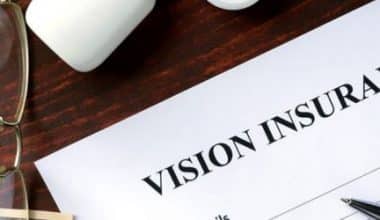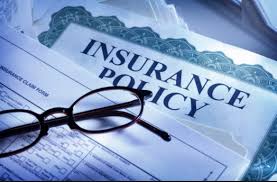How do you handle the unforeseen when it comes knocking at your door?; A slip and fall on the stairs or in the bathroom, your child accidentally damaging a neighbor’s property, or you break the flower vase while cleaning up. All these are unexpected occurrences and you might be forced to pay out of pocket if you don’t have personal liability insurance in place to cover any loss that you could incur. We shall discuss in this article all there is to know about personal liability insurance and personal liability insurance for renters as well.
What Is Personal Liability Insurance?
Personal liability insurance, often known as “comprehensive personal liability (CPL) insurance,” is a part of a homeowners insurance or umbrella insurance policy that protects you and your family from claims stemming from injuries or property damage to others. It protects you from having to pay huge amounts of money out of pocket if you are legally liable for something bad that happens to someone else.
Liability insurance, sometimes known as “third-party insurance,” is a comprehensive coverage category that includes personal liability insurance. There are several types of liability insurance, but they all have one thing in common; they cover accidents that happen to other people that you unwittingly cause or are held liable for.
Personal liability insurance, as the name suggests, protects an individual from responsibility claims originating from bodily harm or property damage caused by personal activity.
Personal liability insurance is available in three forms:
- It comes as part of your home, renter’s, or dwelling insurance policy. This policy, sometimes known as “comprehensive personal liability,” is in most personal insurance policies.
- Individuals who do not own or rent physical property (and thus do not require homeowners insurance) often purchase it as a stand-alone policy.
- It frequently adds to existing insurance, such as personal auto or boat policy.
Personal liability coverage isn’t restricted to insured premises when it’s included in a home’s insurance. It’s possible that the coverage will stretch to occurrences that occur elsewhere. Subject to certain limits, the coverage compensates for bodily injury or property damage. Also, lawyer fees, court costs, and any reimbursements up to the value indicated in the insurance policy are often covered.
What Does Personal Liability Insurance Cover?
Personal liability insurance protects you in a variety of scenarios; eg you’re legally liable for something that happened on your property or in some situations on someone else’s land.
The following are some instances of popular personal liability claims:
- Medical expenditures incurred as a result of an injury sustained by a visitor at your house
- Legal fees incurred as a result of lawsuits filed to recover damages that may be covered by the policy.
- As a result of your negligent conduct or omissions, you may be liable for bodily injury or property damage.
- Your pets may inflict bodily harm or property damage.
Covers Payments for Medical Care
Medical payments to others are another sort of personal liability coverage that is generally inclusive of your homeowner’s policy. Generally, homeowners, renters, or condo policy pays for medical expenditures for those who injure themselves on your property accidentally. This is whether or not you are legally liable.
Medical payments coverage limits typically begin at $1,000 per person. It is possible that higher levels of coverage will be available depending on the type of coverage you choose.
What Personal Liability Insurance Doesn’t Cover
Some personal liability claims may be covered by your homeowners’ or renters’ insurance, but others may not. Among the most common:
- An automobile accident’s liability. Your auto insurance should cover these claims.
- Intentional bodily harm or property damage by you or a family member.
- Injuries or property damage originating from your professional or business activity. Any business-related claims should be protected by a business insurance policy.
Homeowners, renters, or condo insurance does not cover all circumstances of bodily harm or property damage for which you or a covered family member may be legally liable. Because most policies have restrictions and exceptions, it’s critical to understand the specifics of your coverage.
Hence, it’s good you talk to your local agent about your personal liability coverage and other important insurance matters.
Cost Of Coverage
Personal liability coverage on homeowner’s insurance often has a limit price of $100,000 to $300,000. While, umbrella insurance gives comprehensive personal liability coverage of $1 million or more, continuing where these limitations end. This policy covers libel, slander, and malicious prosecution, which are not covered by homes insurance. They’re most effective, though, if your homeowners’ policy limits are less than the injured party’s claim and/or legal expenditures.
What Is Personal Liability Insurance For Renters?
Personal liability insurance is a component of your renter’s insurance policy that protects you in the event that someone files a claim or case against you for bodily damage or property loss. In addition to your personal property protection, a standard renters or tenants policy provides $100,000 in personal liability coverage. However, when acquiring an insurance policy, you can generally choose your own limitations.
Renter’s liability coverage does not extend to damage to your own property, unlike personal property coverage. Instead, you’d use renters liability coverage only if someone else makes a claim or sues you for injuring them or their property.
When Do You Need Renters’ Personal Liability Insurance?
In the event that you are accused of or sued for not protecting someone else from a potential hazard, personal liability renters insurance will help you pay for things like damage to someone else’s property or injuries to them.
However, If someone files a claim against you, they may not be sue you; your insurer may deny their claim if it decides that you were not at fault for the harm. In this instance, the claimant can only challenge the denial letter in court.
Even if you lose a case, renters liability insurance protects you from paying litigation expenses and other damages. Given the high expenses of litigation and medical care, obtaining renters insurance with adequate liability coverage could save you money in a variety of situations.
An example of a typical scenario; your dog bites a passerby or a neighbor, whether or not it happens on your property, you are possibly going to liable by the person for not managing your dog properly if any harm or injury occur.
What Your Renters Personal Liability Insurance Covers
Note that the renter’s personal liability Renters insurance only protects other people and their property, not you or yours. Suppose your dog bites someone outside of your home. Your liability insurance will likely cover their injuries, assuming your insurer does not exclude coverage for that species of animal. If your dog bites you, on the other hand, you’ll have to seek reimbursement through your own health insurance.
Other circumstances covered by renters’ personal liability insurance include
- Home accidents
- Home-based damage that impacts others’ property.
- Accountable damage to other people’s property.
- Liability for social activities you organize.
What Your Renters Personal Liability Insurance Doesn’t Cover
Your tenants’ liability policy does not cover any damages caused by a car, nevertheless, your auto insurance may cover these costs. If you carry out business off your house, your liability coverage will not cover any losses incurred as a result of your professional activities.
An accident involving two people who live in the same house is also gets a piece of the liability policy. Let’s say you and your brother happens to be in the kitchen at the same time and your leg is cut when some pricey glasses crash. Your health insurance would cover any bodily injuries, and your renters’ policy’s personal property protection would cover the broken glassware.
Must You Have This Policy In Place?
Renters’ personal liability coverage is not necessarily a requirement by the state however, your landlord or house owner may require that you have this insurance policy in place; at least up to a minimum amount of the policy as a condition for your rent
Cost Of Coverage For Renters Personal Liability Insurance
Personal umbrella policies cost roughly $400 per year for $1 million of coverage. The low cost is because the policy starts up where your homeowners’ or renters’ insurance stops off.
You won’t get the umbrella coverage until your regular homeowner’s insurance has paid out $500,000 in damages. Due to low claims volume, insurance firms can afford to charge cheap premiums.
But significant claims do occur. Most personal injury settlements and court awards are $1 million and above.
In addition to your existing insurance, a commercial umbrella policy provides additional liability coverage. for instance, If you add $2 million to a $1 million general liability policy, you get $3 million in protection.
Umbrella Policy And Home Insurance
According to the Insurance Information Institute, most insurers will not underwrite a $1 million umbrella liability policy unless you have $250,000 auto liability and $300,000 home liability coverage.
Theft, fire, hurricanes, and other unplanned events are covered by homeowners insurance. It also normally covers limited liability for injuries or property damage caused by you, family members, or pets. There is normally no deductible and liability is restricted to $100,000. The issue is that an accident can result in over $100,000 in medical expenditures, plus missed income and agony and suffering. An umbrella policy protects you and your valuables.
Conclusion
Hopefully, this article widely covers and answers any of your questions about personal liability insurance and renter’s liability insurance that you may have. This type of insurance policy is important because things can and do happen unexpectedly, and it keeps you protected against any misfortune that may occur in the future.
FAQS
Why do I need personal liability insurance?
It helps you avoid having to pay legal-defense fees out of your own pocket. This something most individuals avoid.
How much personal liability should you have?
Most homeowners insurance policies provide a minimum of $100,000 worth of liability insurance, but higher amounts are available and, increasingly, homeowners should consider purchasing at least $300,000 to $500,000 worth of liability coverage
Can I buy umbrella insurance separately?
Umbrella insurance provides protection above and beyond your regular policy. It can be a separate policy or an addition to your current policy and covers property damage, injuries that occur on the property, libel, and certain lawsuits involving business and landlord liabilities.
What is a personal umbrella policy?
Personal umbrella insurance is a type of insurance that adds extra liability coverage over and above another insurance policy, such as auto or homeowners insurance.
{
“@context”: “https://schema.org”,
“@type”: “FAQPage”,
“mainEntity”: [
{
“@type”: “Question”,
“name”: “Why do I need personal liability insurance?”,
“acceptedAnswer”: {
“@type”: “Answer”,
“text”: “
It helps you avoid having to pay legal-defense fees out of your own pocket. This something most individuals avoid.
“
}
}
, {
“@type”: “Question”,
“name”: “How much personal liability should you have?”,
“acceptedAnswer”: {
“@type”: “Answer”,
“text”: “
Most homeowners insurance policies provide a minimum of $100,000 worth of liability insurance, but higher amounts are available and, increasingly, homeowners should consider purchasing at least $300,000 to $500,000 worth of liability coverage
“
}
}
, {
“@type”: “Question”,
“name”: “Can I buy umbrella insurance separately?”,
“acceptedAnswer”: {
“@type”: “Answer”,
“text”: “
Umbrella insurance provides protection above and beyond your regular policy. It can be a separate policy or an addition to your current policy and covers property damage, injuries that occur on the property, libel, and certain lawsuits involving business and landlord liabilities.
“
}
}
, {
“@type”: “Question”,
“name”: “What is a personal umbrella policy?”,
“acceptedAnswer”: {
“@type”: “Answer”,
“text”: “
Personal umbrella insurance is a type of insurance that adds extra liability coverage over and above another insurance policy, such as auto or homeowners insurance.
“
}
}
]
}
Related Articles
- PERSONAL LIABILITY COVERAGE: Definition, Cover & How Much You Need
- General Liability Insurance Policy: For Businesses
- General Liability Insurance Coverage: Definition, Coverage for Small Business and Contractors
- Business General Liability Insurance: Best Quotes and Coverages
- What is Liability Insurance: Types and Coverages for Your Business
- BEST UMBRELLA INSURANCE: 2022 Best Umbrella Insurance Options






